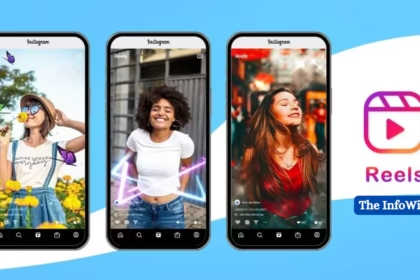Google is moving from Google Assistant to Gemini, aiming to provide a more powerful, AI-driven assistant. This change is already underway for mobile users, with plans to extend to other devices. Here’s what this means for users and what to expect.The transition began recently, with more mobile users upgrading to Gemini over the coming months. By later this year, Google Assistant will no longer be accessible on most mobile devices or available for new downloads on mobile app stores. This change will also affect tablets, cars, headphones, watches, and home devices like speakers, displays, and TVs.
Gemini is designed to be more personal and context-aware, with capabilities like handling complex tasks (e.g., drafting emails, creating lists), supporting free-flowing conversations with Gemini Live, and offering Deep Research for in-depth assistance. It integrates better with services like Gmail, YouTube, and Google Drive, providing a seamless experience across platforms.
User Impact
For users, this means a potentially richer assistant experience, though some may need devices with at least 2GB RAM and running Android 10+ or iOS 16+ to use Gemini. Google Assistant will continue on non-mobile devices for now, ensuring continuity for smart home controls and other functions.
Detailed Report: Google’s Transition from Google Assistant to Gemini
Google’s decision to replace Google Assistant with Gemini marks a pivotal shift in its AI strategy, aiming to enhance user interaction through advanced generative AI capabilities. This report delves into the details of this transition, its timeline, affected devices, new features, and implications for users, drawing from recent announcements and comparisons.
Background and Announcement
On March 14, 2025, Google announced via its official blog that it is upgrading Google Assistant users on mobile to Gemini, offering a new kind of help powered by AI. This move, detailed in a TechCrunch article, reflects Google’s response to the evolving landscape of AI, particularly with generative models transforming how users interact with technology. The announcement aligns with Google’s broader strategy to integrate Gemini deeply into its ecosystem, as seen in its rollout with the Pixel 9 series and other Android devices.
Timeline and Scope
The transition is already underway, with Google planning to upgrade more mobile users to Gemini over the coming months. According to the official blog post, later this year, classic Google Assistant will no longer be accessible on most mobile devices or available for new downloads on mobile app stores. This timeline is corroborated by ZDNET’s coverage, which notes the phased approach to ensure a smooth shift.
The scope extends beyond mobile devices. Google intends to upgrade tablets, cars, headphones, watches, and home devices like speakers, displays, and TVs to Gemini. However, for non-mobile devices such as smart displays, smart speakers, TVs, and others, Google Assistant will continue to respond to “Hey Google” for now, as outlined in Gemini Apps Help.
Device Requirements and Availability
To use Gemini, devices must meet minimum system requirements, including at least 2GB RAM and running Android 10 or higher for Android devices, or iOS 16+ for iPhones, as detailed in Gemini support page. Notably, Android Go devices are not supported. Gemini is available in over 40 languages and more than 200 countries, enhancing its global reach, as mentioned in the Google blog post.
Switched from Google Assistant to Gemini AI—Here’s the Surprising Outcome!
byu/Theinfowire inu_TheinfowireEnhanced Features and Comparisons
Gemini introduces several advanced features that set it apart from Google Assistant, as highlighted in a detailed comparison on Gemini’s official page. Below is a table comparing key aspects (As Google Replaces Assistant with Gemini AI):
| Aspect | Gemini | Google Assistant |
|---|---|---|
| Language Understanding | Built with advanced language understanding and reasoning, supports natural language for complex tasks. | Less advanced, primarily for simpler, hands-free tasks. |
| Response Time | May take longer for simple requests due to sophisticated AI models, but Google is working on improving speed. | Faster for simple requests. |
| Accuracy | May not always get it right; includes a double-check feature and sources in responses. | More reliable for critical facts, suggests using Google Search. |
| New Features | Enhanced with AI for complex tasks (e.g., drafting emails, creating lists, multitasking across apps). Many new features rolling out, marked as “New” in the list below. | Existing features like setting timers, playing music, navigation. |
| Availability | Available on devices with at least 2GB RAM, Android 10+, iOS 16+, in 200+ countries ([support.google.com/gemini/answer/14579026?co=GENIE.Platform%3DAndroid#zippy=%2Cwhere-you-can-download-the-gemini-app-from-the-google-play-store]). Not for Android Go devices. | Widely available, including on headphones, speakers, displays, TVs (continues to operate where Gemini not upgraded yet). |
| Hotword | “Hey Google” will invoke Gemini on upgraded devices; otherwise, invokes Google Assistant. | “Hey Google” currently works for Google Assistant on non-upgraded devices. |
| Multimodal & Agentic | Natively multimodal and agentic, can complete tasks on behalf of users, supports free-flowing conversations. | Less conversational, focused on task execution. |
| Examples of Use | Can handle complex requests like drafting urgent emails, creating images (e.g., cat on BMX on moon), planning meals with dietary restrictions, checking PDFs (with Gemini Advanced). | Basic tasks like setting timers, calling contacts, playing playlists. |
Gemini’s enhancements include Gemini Live for free-flowing, multimodal conversations and Deep Research for personal research assistance, as noted in Google’s Made by Google updates and Gemini Deep Research overview. These features allow users to engage in more dynamic interactions, such as asking Gemini to draft messages or analyze photos, which were less robust in Google Assistant.
Popular Features and User Experience
A breakdown of popular features shows Gemini’s expansion of capabilities. For instance, while both can handle weather queries, Gemini adds new functionalities like step-by-step directions for tasks (e.g., teaching a puppy to sit). For email and drafting, Gemini can check Gmail for recommendations or draft bios based on Google Drive resumes, as seen in the comparison. Smart home control is also enhanced, with Gemini soon supporting locked phone actions like email and calls, as detailed in the comparison page.
An unexpected detail is the ability to switch back to Google Assistant if preferred, as covered in Mashable’s guide, offering users flexibility during the transition. This option is particularly relevant for users who rely on specific Assistant functions, like identifying songs, which Gemini currently does not support as effectively.
User Impact and Transition Process
For users, the transition means accessing a more advanced assistant, but it requires compatible devices. Google is using Assistant preferences and history to ensure a seamless shift, with notifications for Workspace admin accounts, as mentioned in the comparison page. Millions have already switched, according to the Google blog post, indicating broad adoption.
However, some users may face challenges, especially those with older devices not meeting Gemini’s requirements or those reliant on Assistant for smart home controls, which will continue on non-upgraded devices. Feedback mechanisms, such as thumbs up/down on responses, are available, with updates tracked at Gemini’s updates page, ensuring user input shapes future improvements.
The InfoWire’s Opinion
Google’s replacement of Google Assistant with Gemini is a strategic move to leverage generative AI, offering users enhanced, personalized assistance. While the transition is complex, with phased rollouts and device-specific considerations, it promises a richer experience, particularly for mobile users. The ability to switch back to Assistant and continued support for non-mobile devices mitigates potential disruptions, aligning with Google’s mission to build the world’s most helpful assistant.
Stay Tuned & Stay Connected!











![OpenAI to Release New Open-Weight AI Language Model with Reasoning Capabilities [ 2025] 19 OpenAI to Release New Open-Weight AI Language Model](https://theinfowire.com/wp-content/uploads/2025/04/OpenAI-to-Release-New-Open-Weight-AI-Language-Model-420x280.avif)

